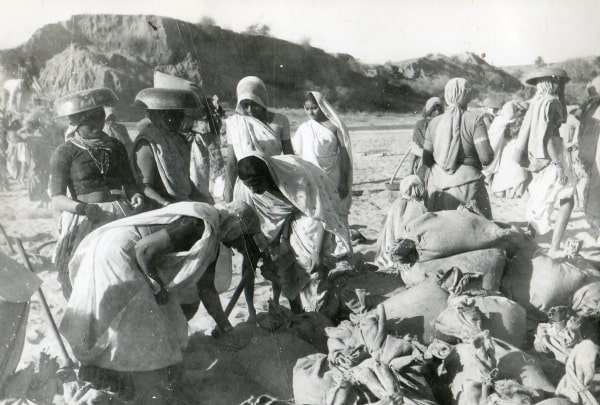When the India-Pakistani War erupted in December 1971, the town of Bhuj in Gujarat found itself at the heart of a crisis. After a devastating air raid by Pakistani forces destroyed the Indian Air Force runway, it was the women of Bhuj and neighbouring Madhapar who rose to the challenge, becoming an extraordinary force behind India’s war effort.
On the night of 8 December 1971, Pakistani aircraft bombed the Bhuj air base, leaving the runway in ruins and halting air operations. With the threat of further attacks looming and time running out, the Indian Air Force and local authorities appealed to the community for help. More than 300 women, many of them daily wage earners, answered the call. Among them was Kanbai Shivji Hirani, then just 24 years old.
#WATCH | Bhuj, Kutch, Gujarat: During the 1971 Indo-Pakistani War, a group of women of Bhuj played an essential role in defeating Pakistan by rebuilding the damaged Indian Air Force (IAF) airstrip after Pakistani air strikes.
Kanbai Shivji Hirani, one of the women from that… pic.twitter.com/0FvcPiNBgj
— ANI (@ANI) May 5, 2025
“In 1971, when the war between India and Pakistan happened, I was 24 years old. At that time, Pakistan bombed the runway in Bhuj. They destroyed everything during a nighttime bombing raid. Then the question arose-what do we do now?” Kanbai told ANI.
She described how the women worked from sunrise to sunset, braving the constant threat of fresh bombings. “We left home at 7 am and returned at 7 pm. We were told, ‘When the first siren goes off, hide wherever possible. When the second siren sounds, come out and get back to work.’ That’s how we worked. We risked our lives, but we had to save India,” she recalled.
The women wore green saris to blend into the landscape and even camouflaged bridges with cow dung to prevent further attacks. Despite having little to eat and enduring harsh conditions, their determination never faltered. “It was not possible to build the runway soon, but we made it possible by rebuilding it, as it was a matter of the country,” Kanbai said. Thanks to their efforts, the airstrip was operational again within 72 hours, allowing Indian fighter jets to take off and continue their mission.
Home Guards
While one group toiled on the runway, others served as Home Guards, maintaining order and morale in a town under siege. Jyotiben Upadhyay, who joined the Home Guard services in 1971, recalled the terror of the bombings and the vital role women played in supporting the community. “When the war had started, Pakistan had thrown 17 bombs on Bhuj in a single day… there was a blackout in Bhuj, we all used to go in the streets together and comfort the people who were scared of the situation,” she told ANI. Jyotiben and her colleagues patrolled the streets during blackouts, reassuring frightened residents and helping to keep calm.
#WATCH | Bhuj, Kutch, Gujarat | During the 1971 Indo-Pakistani War, women serving as Home Guards played an essential role in defeating Pakistan.
Jyotiben Upadhyay, who served as a Home Guard during the 1971 Indo-Pakistani War says, “I had joined the Home Guard services in 1971.… pic.twitter.com/vbUr5dNPTu
— ANI (@ANI) May 6, 2025


